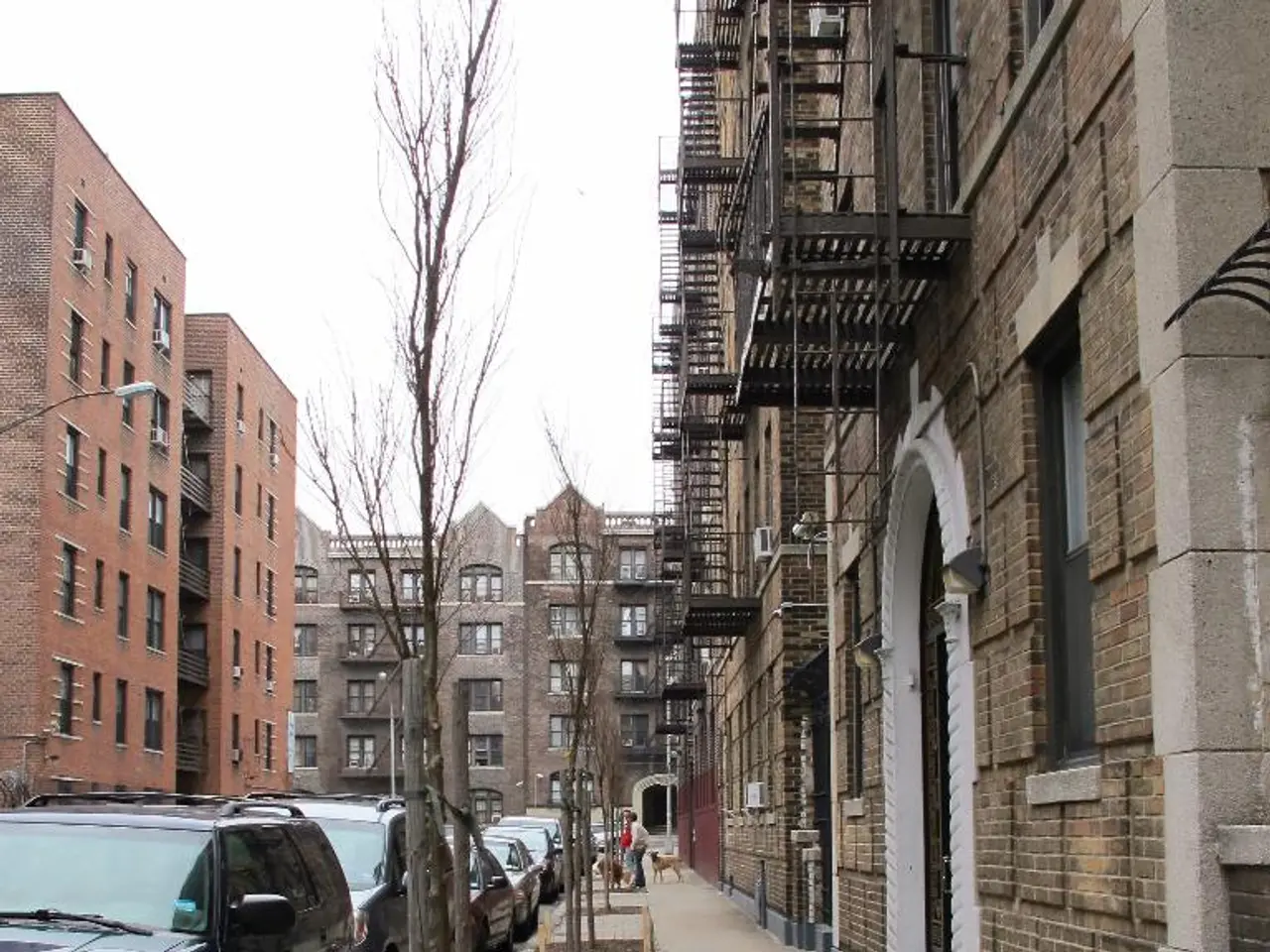German Rent Cap Extension: A Double-Edged Sword for Tenants and Property Market
Parliament Grants Approval for the Prolongation of Rent Cap Adjustment
The German Bundestag has approved the extension of the rent cap until 2029, providing relief to tenants in major cities. Justice Minister Stefanie Hubig believes this extension will offer security and time to breathe for many Germans living in rental apartments.
But is this "toothless tiger" of a rent cap truly helpful, or could it be causing unintended consequences for the property market?
Rent Cap: A Blessing or a Curse?
Introduced in 2015, the rent cap limits rental hikes to 10% above the local average in high-demand cities. However, this regulation has given rise to mixed opinions. While it offers protection to tenants, critics argue it discourages new apartment construction.
With the new regulation, state governments can determine areas with a housing shortage by issuing ordinances long after 2025. Economists contend that the rent cap makes investments in rental properties less attractive due to reduced revenue growth and compressed cash flows, particularly in urban areas [1][3].
The Impact on Housing Investment and Construction
Real estate investors, including REITs, face lower yields in these regulated markets, deterring new construction [1][3]. The limited incentives for property upgrades and development, combined with the cap on rent increases, worsen the housing shortage instead of alleviating it [4].
Annual construction in Germany has stalled below 100,000 units since 2021, while the country requires over 1 million new social housing units by 2030 [3]. Although government reforms like the "construction turbo" aim to accelerate supply, these measures will take years to fully impact the market [1].
Balancing Act: Security for Tenants vs. Progress for Property Market
While the rent cap provides tenants with some much-needed security against uncontrolled rent hikes, ensuring that Germany builds faster and more cost-effectively is equally important [1]. Critics argue that the rent cap does not solve the housing shortage, with its primary benefits going to those who already have apartments, rather than addressing the needs of those searching for a home [4].
With the extension of the rent cap through 2029, tensions between tenant protections and the property market's growth potential are expected to escalate. Strike a balance between these two interests will be crucial for ensuring a sustained solution to Germany's housing crisis.
References:[1] ntb.de, jog/rts[2] Hoyer, R. (2020, January 23). Redd It: Germany’s rent cap: a failure or success? Open Europe. Retrieved June 1, 2023, from https://www.openeurope.org.uk/analysis-and-commentary/blogs/germanys-rent-cap-failure-or-success[3] Kunz, M. M., & Bohrmann, M. (2019, August 22). The shadow of rent control: The role of pretightness of the housing market and investor expectations in the allocation of rental apartments. Federal Reserve Bank of St. Louis Working Paper, 2019-092. Retrieved June 1, 2023, from https://doi.org/10.26509/frbp-_wp-_2019-092[4] Landesmann, L. J., & Plank, U. (2022, June 15). Rent Controls: A Solution to Germany's Housing Shortage or a Misguided Policy? Deutsche Welle. Retrieved June 1, 2023, from https://www.dw.com/en/rent-controls-a-solution-to-germanys-housing-shortage-or-a-misguided-policy/a-61364091
The extension of the German rent cap could have a profound impact on the property market, as some economists assert that it may dissuade investments in rental properties, lowering revenue growth and cash flows, particularly in urban areas [1][3]. This could potentially lead to less incentive for property upgrades, development, and construction, exacerbating the existing housing shortage in the country [4].
The ongoing debate about the rent cap highlights the need for a balance between tenant protections and the growth potential of the property market. With the extension of the rent cap until 2029, finance [finance], business [business], politics [politics], and general-news [general-news] will continue to discuss the impact on the housing market, and the need for sustainable solutions to address Germany's housing crisis [1].
['This extension of the rent cap could potentially lead to less incentive for property upgrades, development, and construction in EC countries', 'The ongoing debate about the rent cap highlights the need for a balance between tenant protections and the growth potential of the property market in EC countries']






